The Romans in their Decadence by Thomas Couture 1847. Displayed a year before the French Revolution
Most people don’t want freedom, they just want comfort, and that’s ok.
They don’t have time for it. They are just trying to do the best they can in this world with the circumstances they were given, and have a few more good times than bad.
Nothing wrong with that for the 3.75 billion people on the planet who make less than US$10,000 a year.
That is over half the world who are just trying to reach the third tier of Maslow’s hierarchy of needs pyramid where they have shelter, food, and their family is safe from violence.
As they grind through each day on this globally connected planet, they keep glancing at their phones, seeing how the other half is living in the fantasy world portrayed on social (not really social, healthy, or reality) media.
Over half the world wants to get to the other side where a day is measured in hashtags instead of how many meals they missed or how many family members they buried.
They likely never will.
But if the price for a shot at living the life they see on their phones is their freedom, they’ll pay it.
It is not fair, but then neither is life. Life is just real and uncaring.
Only 527 million people, 7% of the world, will reach the vaunted height of Maslow’s fourth tier, where people think their feelings are important.
They start to realize the truth behind Nobel Prize Laureate Angus Deaton’s research; people aren’t proportionally happier making more than US$75,000 a year.
Point being, it is understandable the vast majority of people in the world just want to be comfortable.
It is important to overlay this basic human need for comfort on the current worldwide dynamics at play: record levels of sovereign debt, shifting geopolitical powers, and changing generational consumer dynamics.
In the midst of this global maelstrom, the birth of arguably the most powerful technology to ever exist on the planet — blockchain — is currently being born.
Capable of giving governments an eternal, unalterable, and always accessible record of everyone and everything.
Meanwhile, most people are not concerned at all with the breathtaking technological change happening just below the surface of their iPhone as they seek comfort in the dull glow of the screen and click another heart next to someone else’s made up life on Instagram.
The world is hurtling towards absolute financial asset transparency to all governments, and has been on this trajectory for some time.
In the future, governments will have blockchain technology, and most people won’t understand the world has unalterably changed while they weren’t paying attention.
To be clear, this article isn’t about how to change this global trend.
Personally, I don’t even think it is possible.
But since the world is providing the opportunity, I’ll profit from it.
The Present World
It started with the OECD

OECD stands for the Organisation for Economic Co-operation and Development. It was established in 1948, and consists of 36 member states today, but their influence financially is felt worldwide.
Together, the OECD countries make up $49.26 trillion of the $80 trillion annual world income, or 61.57%.
The OECD developed the CRS (Common Reporting Standard) in 2014.
The CRS is an automatic exchange of information on bank accounts at a global level between tax jurisdictions.
What started with the OECD, has now spread so that 126 countries have signed onto CRS.
126 countries now agree to share all private bank account information with other foreign tax jurisdictions directly between governments so they can all make sure they are getting maximum tax revenues owed.
2018 was the first year CRS went live. Governments are now mapping all assets in their jurisdictions and sharing with other governments directly.
Banks comply with the governments, or are shut out of operating in those jurisdictions.
Welcome to the future of absolute financial transparency.
Transparency for Taxation
If you have a moment, the 2018 Frank Knight Wealth Report is well worth a read.

Great interview with historian Niall Ferguson, as well as the graphic above, showing US$200 billion in capital outflow from jurisdictions where CRS went active this year to jurisdictions which are not yet participating (namely US and Taiwan).
This capital flight is temporary. Eventually all assets will be mapped, whether governments move to blockchain first or not.
For Americans, we already have to comply with FACTA (Fair and Accurate Credit Transactions Act) and report all worldwide assets. Eventually, blockchain and cryptocurrencies will fall under this requirement.
Each year, more countries will comply with CRS until most of the capital assets in the world are fully mapped by location.
Blockchain doesn’t change the direction the world is already going, it just speeds up how fast we get to total transparency for taxation.
Combined with this transparency will be the unavoidable problems the world will face in the future.
The IMF is warning of record debt levels by the advanced economies of the world, surpassing even 2009 after the global financial crisis.
The Congressional Budget Office (CBO) is warning that in five years, by 2023, the United States will be at 117% debt to GDP with the trillions in deficits we continue to run.
2023 also happens to be the year which those born after World War II will reach maximum numbers leaving the work force for retirement and start drawing down equity retirement accounts for income.
Real Vision just did a phenomenal presentation on this problem. I’ve watched it three times. Absolutely outstanding.
In the face of these numbers, household debt continues to rise in 80 countries tracked by the IMF.
The chart below shows US treasury bond yield rates and how they invert ahead of recessions along with the timeline and actions I think are possible as bitcoin matures as an asset class.
The timing is who knows but the trajectory is likely. What really sets the timing in motion will be when the 2 YR yield inverts to the 30 YR yield.

The Unavoidable Transparent Future
This future is inescapable. Transparency for taxation will happen.
There is no more privacy left in assets except for cash and physical gold/silver, but those each having their own benefits and problems.
By trying to remain private in a transparent world, even legal, lawfully obtained funds, a person stands to lose everything.
Fighting the system will only result in unwanted attention from bureaucrats and potentially federal agents looking to seize assets which without transparency, aren’t provable on how they were obtained.
Some will say that in a transparent world, specifically with blockchain, that privacy cryptocurrencies will flourish as people seek freedom.
Maybe for specific limited circumstances, but that isn’t my focus or interest.
My only concern is exiting positions when the timing is right and continuing wealth accumulation without any hassle or red flags as I shift to the next market cycle and asset class.
At some point all US domestic exchanges will be required to issue a 1099-B, Schedule D, and Form 8949 documenting all trades.
For overseas accounts, most likely Americans will be be required to file FACTA forms and declare trades and holdings on foreign crypto exchanges, just like current foreign bank/investment accounts are treated.
When that happens, likely most exchanges outside the US will just say no US customers as FACTA compliance isn’t a lightly taken task by an institution.
Honestly, I secretly hope the verdict is to go back to 2017, where crypto to crypto is not taxable, only the exit to USD. Would make it considerably easier for all involved — individuals, institutions, and the government would still get their tax revenue on the back end.
Will be interesting to see if institutions lobby the government to that effect once they are fully in the space.
Before institutions can truly enter the asset class in force, the SEC has to declare that the Wild West has been civilized, and is now a place of lawful commerce.
The SEC is starting this process, bringing the full weight of government enforcement to blockchain and the cryptocurrency world.
The timing of this is not an accident with Bakkt scheduled to start trading in a month.
Likely Bakkt will self-certify in a couple weeks, CFTC will clear them for trading, and that’s it, just stand still for the camera flash as the last spike is hammered in the transcontinental railroad and the west is no longer wild.
A railroad and telegraph poles now reach over the horizon, the Yale Endowment Fund can now be assured they aren’t investing alongside human traffickers in crypto, snake oil salesmen aren’t allowed to sell mercury as medicine, and it’s considered impolite to walk around town with your guns uncovered.
For those who want to accumulate wealth with the incredible profit ahead in this asset class, it is a welcome sight seeing the SEC and CFTC standing on the boardwalk with a star pinned to their chest letting the world know the territory is now safe.
For those who instead say this is not the freedom that blockchain or cryptocurrency was supposed to bring, well, sorry.
This is a western, but the Westworld variety, total control and transparency.
How did you think this story was going to end?
I am embracing the transparency early for taxes and profit.
Going fully through the looking glass, to show legal source of funds for buying bitcoin, filing capital gains forms and closing position reports with yearly taxes, so the incredible profits exited with in the near future are unquestionable and easily provable.
I keep screenshots of all my wire transfers from my bank to show the amounts correspond with the funding used to purchase cryptocurrencies in case it is needed when I exit from my positions in the next 5–9 years.
That will give me bank records and 7–11 years of tax returns including 1099-B, Schedule D, and Form 8949 detailing out capital gains, closing position reports, all transparent and proving legal profits.
Some will say this is overkill and unneeded. Maybe, but I measure everything in risk, and the risk associated with not being transparent is far greater.
This isn’t the future I would choose, but the world doesn’t care about what I want, and I don’t need it to teach me that lesson anymore.
None of this is advice, only what I am doing with my own investments.
So I’ll take full transparency, pay the 20% tax on long term gains, and be looking for the next frontier to head to after this one.
Why another frontier? The fun part is the uncertainty.
It lets a person know they are alive when they can still lose. — Radigan

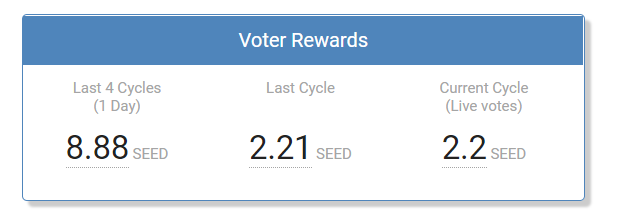
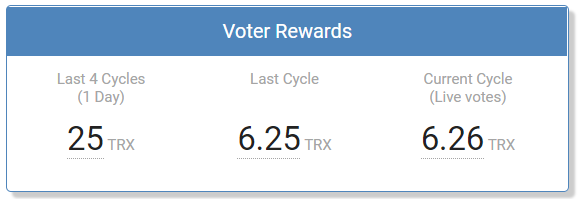
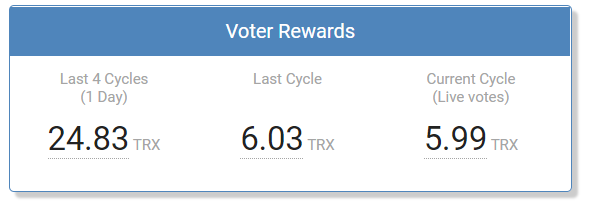
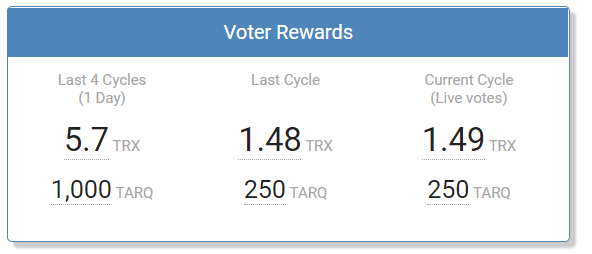
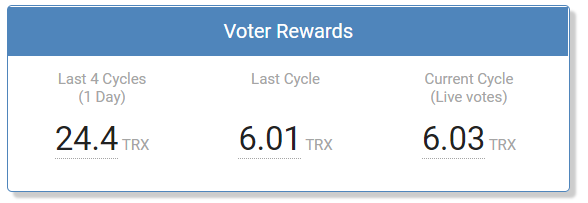
![Stellar Lumens [XLM] Overtakes EOS On The Cryptocurrency Charts; Major Market Volatility Detected 9 CoinMarketCap e1542011075303](https://ambcrypto.com/wp-content/uploads/2018/11/CoinMarketCap-e1542011075303.png)
![Tron [TRX] Price Analysis 10 1](https://www.tronweekly.com//wp-content/uploads/2018/11/1-1024x440.jpg)
![Tron [TRX] Price Analysis 11 2](https://www.tronweekly.com//wp-content/uploads/2018/11/2-1024x438.jpg)
![Tron [TRX] And Bitcoin Cash [BCH] Slip Of The Price Ramp 12 BCH chart e1541659326359](https://ambcrypto.com/wp-content/uploads/2018/11/BCH-chart-e1541659326359.jpg)
![Tron [TRX] And Bitcoin Cash [BCH] Slip Of The Price Ramp 13 TRON chart e1541659678642](https://ambcrypto.com/wp-content/uploads/2018/11/TRON-chart-e1541659678642.jpg)